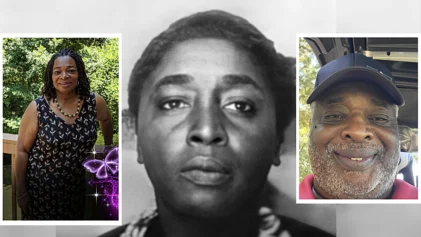A Black British boy was on the verge of being deported after London police detained him and misidentified him as an illegal immigrant. The mother wonders how the authorities could create a name, nationality, and story surrounding the teen despite him being nonverbal and having no identification to dictate that information.

The Guardian newspaper reports that on Thursday, April 7, the 17-year-old boy, whose name is withheld from the public, went missing from a Kent hospital. He was admitted to the medical facility under the Mental Health Act because he was suffering from a mental health crisis.
On Saturday, April 9, the young man was accused of fare evasion and arrested by the British Transport Police (BTP) at Euston. The officers took him to the Immigration Enforcement near Gatwick despite the teen being a British national.
Over the two days, the hospital notified the teen’s family, local police, and BTP about his disappearance from its campus, listing him as a missing person with the necessary agencies.
The police nurses from the Home Office assessed the boy and arrived at the conclusion he had no physical or mental health issues.
When authorities realized the detained was the missing child they returned him to the hospital but sent him with Home Office documents that incorrectly stated vital details about his identity, including giving him the wrong name, date of birth, and nationality. The paperwork listed him as Nigerian.
The boy’s mother described the mix-up as “just horrific.”
“Because he’s Black they just assumed ‘let’s pick him and put him in a deportation center,’” she questioned. “How do they know he’s from Nigeria when he doesn’t even speak to them?”
Little is known about where he was during the days before getting picked up by the police.
Somehow, he made his way to his family’s old neighborhood in Manchester. Reports believe he tried to return to London but did not have a phone, money, or any identification, so got picked up for a petty crime of trying to stow away on a London-bound train from Manchester.
The BTP said, “Officers were unable to engage with the male or verify the details provided despite their efforts, which included attending the address provided” at the detention center. But the statement said the male, despite not being able to speak, gave them a false name and date of birth. He also allegedly told them he was 20.
Law enforcement fingerprinted him after he gave them this information and took him to Immigration Enforcement.
The minor was described as a person who required leave to enter or remain in the country by the agency, despite the boy being a U.K. citizen. In fact, one document even stated his deportation from the U.K. was “imminent” because he could not give “satisfactory or reliable answers” to immigration officers.
The Black Brit was born in the country, and according to his mother, has never left the United Kingdom. She also shared he was not capable of giving his correct birthdate.
The police said the reason they believed he was Nigerian was because after doing a background search on the Kent address he gave them, it was a Nigerian family’s home. The officers believed he had a Nigerian accent, also. The mother said when her son speaks, which is rare, it is with a Mancunian and London accent, not an African one.
Deputy director of Detention Action James Wilson when made aware of the situation, said unaccompanied minors should not be placed in detention.
“In theory, detention should be an absolute last resort, rather than an early step you would go to,” he offered, not addressing the mischaracterization of him as an adult by the person who filled out his documentation.
A representative from the Home Office commented also, saying, “We rely on information provided by our policing partners when an individual is referred to Immigration Enforcement. In this case, the individual declared himself to British Transport Police to be an adult male. Police nurses assessed him and raised no physical or mental health issues.”
The spokesperson went on to say when the boy’s true identity was discovered, he was returned to the hospital, the original place that treated him for his psychosis.
According to the 2005 British Mental Capacity Act (MCA) section 2 as taught in Police College, says “a lack of capacity cannot be established merely by reference a person’s age or appearance or a condition or an aspect of their behavior, which might lead others to make unjustified assumptions about their capacity.”
It further notes, “officers should act or make decisions under this Act for or on behalf of a person who lacks capacity in that person’s best interests.”
The policy continues, saying “before acting or making the decision, officers must have regard to whether they can achieve the purpose for which it is needed as effectively in a way that is less restrictive of the person’s rights and freedom of action.”
UK Police College also suggests, “when police officers are called to respond to a situation involving a mentally vulnerable person, it is important that they have access to relevant information that may inform risk management. They should seek guidance from healthcare professionals where appropriate.”
“Police actions and interventions should be proportionate to the requirement, using the least restrictive means to protect the safety of the individual, the public, and themselves, and to prevent crime,” it continued. “Officers should also consider the possible explanations for an individual’s behavior, including physical illness, injury or Neuro-disability, mental ill-health, a learning disability and intoxication (caused by medication, illicit drugs or alcohol).”
In this nonverbal boy’s case, an assessment of his mental capacity or aptitude was never considered and several of the aforementioned precautions were allegedly not taken by the BTP.
The BTP said it will internally review the incident. The arresting officers may have to look at policing policy for working with those with a different mental capacity than normal.


